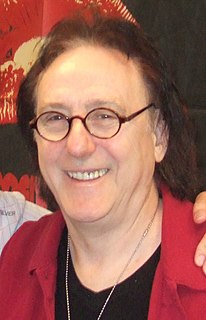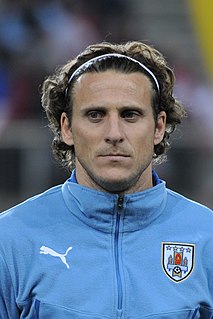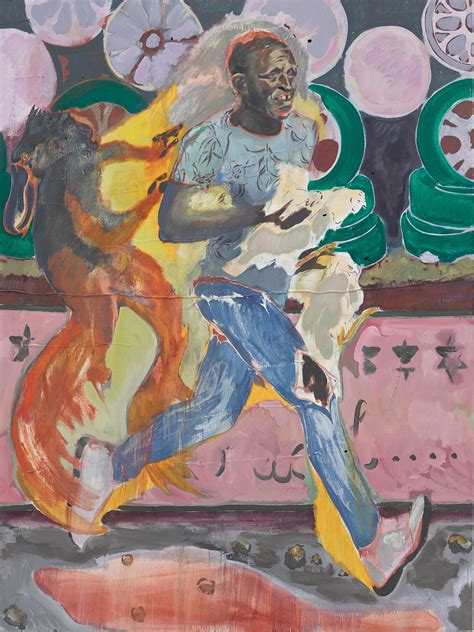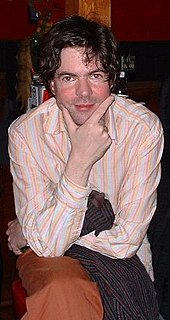A Quote by Brian Setzer
Normally, you go into the recording studio, make a record and then take it on the road and you think... wow... I could have done THIS to it, or something.
Related Quotes
I think from age 13, 14, 15, I thought, yes, this rich studio produced music is the future, but it can't be the future to go run away into the recording studio. How can we take that kind of complexity and richness and make it possible for people to touch it and play it live. That's what hyperinstruments are.
I call it "being interrupted by success." We had done The Soft Bulletin, which came out in 1999, and we knew we that were gonna make another record before too long. But in between this, we were still in this mode of kind of just - not re-creating what we could be, but kind of doing different things. For the longest time in the Flaming Lips we were like, "Make a record, go on tour. Come back, make another record," and you know, I think, frankly, we were kind of like, "There's more to life than just recording records and going on tour."
There were two recording studios in Bellingham. One was really expensive, a "nice studio." We were at the point where we were young and irreverent. We would scoff at the idea of a nice studio. "Why would you want to go to a nice studio? Oh wow, they have really expensive gear. Ooh, that's really fancy. Well we've got an eight-track. We've got it going on here." Now that we have the resources, we're like, "Oh wow, a nice studio is pretty nice! They do have nice outboards here. It's actually a pretty good place." It's funny how much changes so quickly.
When we came along there was only Decca, Philips and EMI who could really produce a record for you. You had to go through the whole bureaucracy to get into the recording studio. You were in such a humble position, you didn't have more than 12 hours to make a whole album, which is what we did in the early days.
If you end up spending more time in the studio than you do on the road, that's not a good balance for me. Because I think when you're in the studio, you need to come off the road and go in the studio and that's when you're applying your best. That's when you've got the best attitude, best energy, all that stuff.
I wish I could go out farther from my musical history. I didn't realize how hard it was until I tried to do it. All the basic tracks on Romanian Names were done in my basement, alone, without any of the self-consciousness that comes with being in the studio. It was a completely different process. And those two things definitely made the record sound different. But you want this quantum leap from record to record, and maybe if I did make a quantum leap I'd make an unlistenable album. So maybe I'm lucky that I can't pull it off.
I think everyone at some point comes up against a wall. Curiously, though, if you continue working, you might readdress that idea from another direction. If you didn't try something, you'd never have anything; if you didn't make an attempt to make the work, it wouldn't exist. There have been times when I could not work, and I would just go and sit down in the studio and wait to see what might happen. You can't always just go and take an exotic trip and come back and make something.
If I have a song that I feel is really one of my best songs, I like it to have a formal studio recording because I believe that something being officially released on a studio record gives it a certain authority that it doesn't quite have if it comes out on a live album or is just a part of your show, you know.
If you're recording the song on your four-track in your kitchen, when you finished writing the song, you're recording, and it's cool, and honor that. And maybe that's the version that should be released. And if you're recording the song again, it shouldn't be because there's a version you love that you're chasing. It should be because "You know what? I made a recording, but I don't love it emotionally." So, okay, then record again. And be in it and take advantage of the buzz and energy of "I'm getting to record right now!" It's such a beautiful and cool privilege.


































